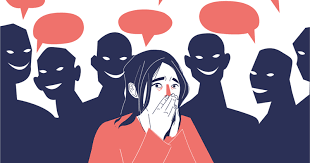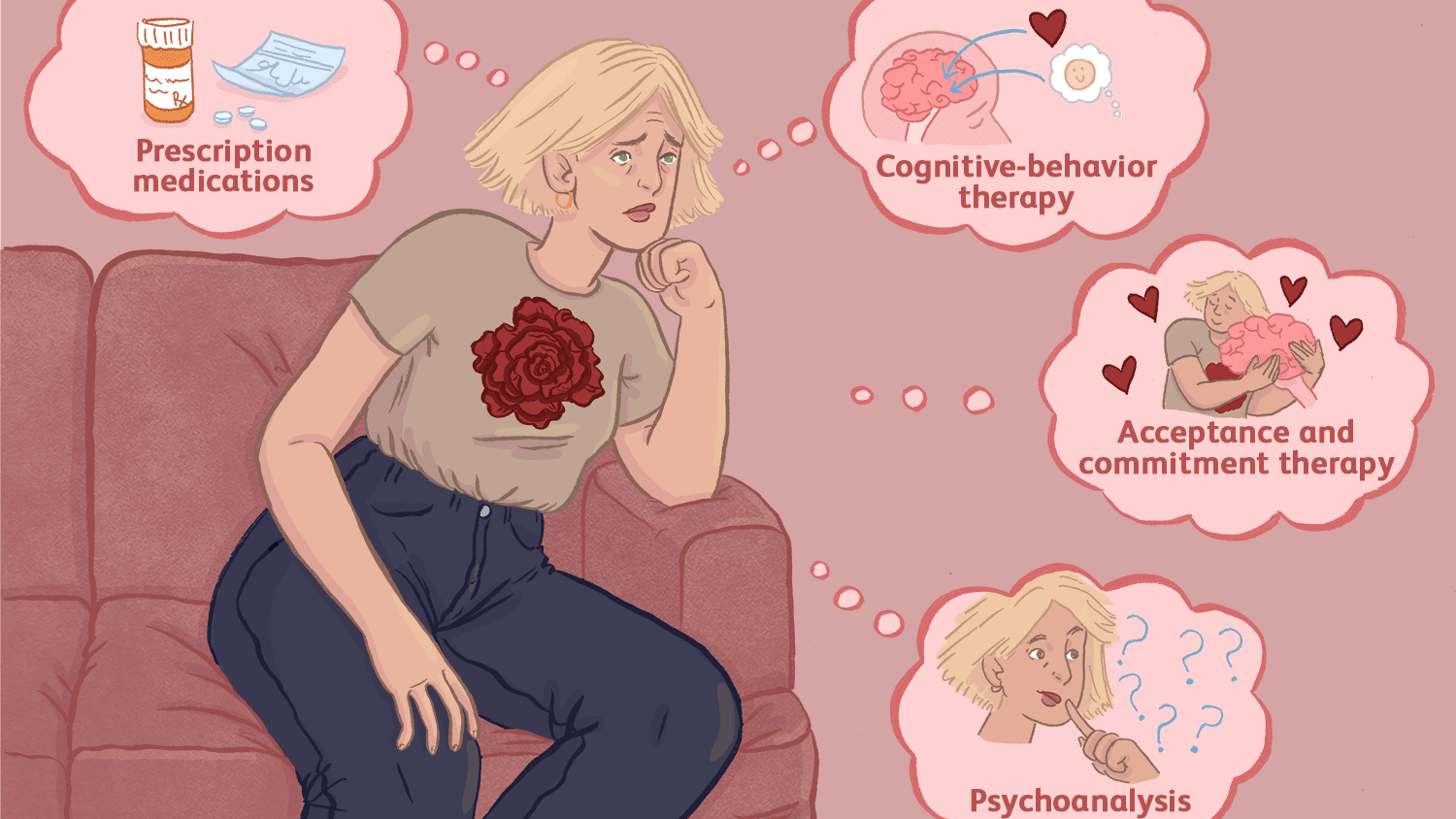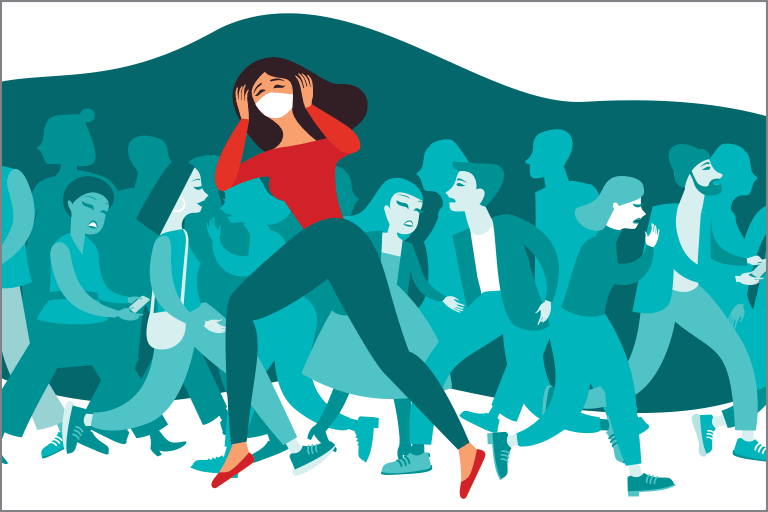Do you feel nervous when you are with other people or meeting new people? If so, then this article is for you! In this article, we will tell you what social anxiety is and how to get rid of it. We will also talk about where it comes from and why it can be hard to go out in the world when you have social anxiety. Once you know why someone might have social anxiety, you can see how therapy can help them. There are many ways for people to live their life without feeling anxious about being around other people.
Contents
What is Social Anxiety?

Social anxiety is a feeling of nervousness someone might experience when they are around other people. This can happen in many different situations, but it usually only occurs with strangers or new acquaintances. People who have social anxiety feel anxious because they are afraid that something bad will happen to them while they are talking to others. They fear that the person next to them will judge what they say or think that other people might be talking about them.
People who have social anxiety usually do not like going out in the world because of these feelings. They feel nervous when they are at a party or even just walking down the street with someone else. This is why therapy can help people get rid of their anxiety and it’s also great for those who want to stop feeling anxious around others! There are many different strategies one could use to overcome this issue, but we recommend you try our method first.
Types Of Social Anxiety
There are two different types of social anxiety that someone can have, which include generalized and specific.
- A person who has general social anxiety is nervous in many different situations with other people; they feel anxious when they are hanging out with friends or even just talking to strangers on the street.
- People who have a certain type of social anxiety usually only feel this way around a certain group of people like their coworkers, classmates, or family members. Sometimes these feelings come up because you know a lot about them; for example, if you were afraid of meeting your boyfriend’s parents it might be because you think his mom hates you! This form of social anxiety happens less frequently than the former one does but both ways will make it hard for an individual to deal with any type of social situation.
Symptoms
There are many different symptoms that someone with social anxiety might have. Some of them include sweating, nausea, dry mouth, shaking hands or feet, and even fainting when in a stressful situation. Some people feel worried about their future, but they cannot say what is on their minds. That makes them feel anxious.
Causes
Usually, there isn’t a specific reason why someone develops this type of problem. It could come from your personal life. Many times people who were bullied as kids will develop these types of issues later on in life; It is important to try not to judge other people. We don’t know what they are thinking in their head.
Sometimes people develop social anxiety because they think too much about different issues in their life. People might be worried about what might happen to them. People can’t live a normal life if they are always nervous around people.
Diagnosis

It is essential to know the exact reason for your anxiety. This will help you determine whether therapy or medication can reduce its effects on your life more efficiently.
There are a number of tests that doctors use for diagnosing social anxiety disorder:
- The Liebowitz Social Anxiety Scale (LSAS)
- The Diagnostic and Statistical Manual IV-TR (DSM-IV-TR)
- The Social Phobia and Anxiety Inventory for Children & Adolescents, Self Report Form
- Shyness Questionnaire
- A doctor may also conduct a clinical interview to understand the symptoms of social anxiety in more detail.
Treatment or Therapy for Social Anxiety
Your doctor will determine the treatment plan based on your personal needs. This may include a mix of psychotherapy, medications or other therapies to reduce symptoms of social anxiety disorder.
The main aim is to help you manage stress and prevent future episodes so that you can regain normalcy in your life. Here are some forms of therapy for treating social anxiety disorder:
- Cognitive Behavior Therapy (CBT)
- Exposure Response Prevention Therapy (ERP)
- Bi-Lateral Electro Convulsive Treatment(ECT)
- Eye Movement Desensitization Reprocessing(EMDR)
- Neuro-Linguistic Programming (NLP)
- Virtual Reality
- Exposure Therapies
- Talk Therapy
The effectiveness of these treatments often depends upon the severity of your condition. They can be used in combination with medications to reduce social anxiety disorder symptoms.

Cognitive Behavior Therapy (CBT)
This therapy helps you learn to recognize and change negative thinking patterns that contribute to social anxiety disorder. You will slowly build your confidence levels by changing your behavior from fearful to positive.
Possible Exposure Therapy
This therapy might involve exposure. You can do exposure in a safe place so you don’t feel anxious or have panic attacks. The therapist can guide you through this process and help manage symptoms if they occur during the session.
Group Therapy
Group sessions help if you have a social anxiety disorder. You can work through your challenges with other people who also have a social anxiety disorder. It provides much-needed encouragement and support too!
Exposure Response Prevention Therapy (ERP)
This is a common treatment for the fear of social situations. In this therapy, you will be shown things that make you feel scared. This is to help you learn that these feelings are not true.
Bi-Lateral Electro Convulsive Treatment(ECT)
This is a treatment that involves the use of electric currents to treat severe forms of depression, schizophrenia, or mania. It has also been used for treating social anxiety disorder when other therapies fail. So there you have it! This guide should help you gain control over your life and live more normally without fear of being judged by others. Socializing with friends will become much easier now as you learn how to manage symptoms effectively using various therapy treatments available today!
Eye Movement Desensitization Reprocessing(EMDR)
This therapy is effective in treating symptoms of social anxiety disorder after other methods fail. It involves the use of eye movements to reduce anxious thoughts and feelings.
Neuro-Linguistic Programming (NLP)
This is a form of therapy that focuses on self-help techniques to manage anxiety symptoms. It helps you understand the connection between your internal representation and how it affects thoughts, feelings, actions, or behaviors.
Mindfulness-Based Cognitive Therapy (MBCT)
This type of therapy helps people with their emotions. They learn to change negative feelings into positive ones by accepting them. It allows you to let go of past experiences so as not to affect current life events negatively in any way.
Biofeedback
Biofeedback is now being used to treat social anxiety disorder. It is as good as other treatments, like medications! The procedure provides information about physiological responses like skin temperature, sweat levels, or muscle activity. Consequently, this allows you to learn effective ways of managing anxiety symptoms effectively.
Social Skills Training
By learning new skills in socializing with others, this treatment can help overcome social anxiety disorder very fast! It focuses on the concept that how we communicate with other people is equally important as what we say or do in any situation. You will learn during therapy sessions how to respond in social situations. This will help you feel less anxious when you talk to people.
Self-Help Books For Social Anxiety Disorder
There are some self-help books for people who have social anxiety. These can help them at home too. Doctors often give you information about symptoms and treatments of Social Anxiety Disorder. Doctors can tell you about healthy lifestyle choices that help with this disorder.
Virtual Reality
Virtual reality therapy is now being used to treat social anxiety disorder with great success rates! It uses a computer-generated simulation of real-life situations that can help desensitize patients over time. This helps the patient overcome their fear by exposing them to environments they want to be in. They can wear special equipment like headgear, glasses, or headphones.
Self-Esteem Enhancement
When you have a social anxiety disorder, it is important to work on your self-esteem when you are at home. You can also get help with this at treatments. You can do this by learning new skills, doing activities you enjoy every day, and being around people who support you.
Interpersonal Therapy(IPT)
This therapy is helpful in treating social anxiety disorder by helping you cope better with stress and interpersonal issues at home too. Additionally, negative thinking patterns, belief systems, and perceptions might affect your coping skills. For example, if you don’t think negative things about a situation and you think it is bad.
Talk Therapy
Talking about your problems with a therapist is good. They will help you if you are being open and honest with them. Also, this therapy is for people with a condition that makes them feel bad. It is where you go to learn how to cope better and see things differently.
Medications For Treating Social Anxiety Disorder
There are specific medications prescribed by doctors that help ease symptoms of social anxiety disorder like serotonin reuptake inhibitors (SSRIs). Some examples include fluvoxamine maleate (Luvox), paroxetine (Paxil, Pexeva), fluoxetine (Prozac, Sarafem, Selfemra), sertraline (Zoloft), and citalopram hydrobromide (Celexa). Anti-anxiety medications are also prescribed to treat social anxiety disorder. For instance, benzodiazepines like alprazolam XR or lorazepam may be used for treating short-term episodes of anxiety attacks.
The above information should help sufferers of social anxiety disorder better understand what they suffer from and how best they can be treated accordingly! There is no reason to be ashamed of your condition anymore. There are several treatments that will work quickly and without any negative effects or side effects like other drugs might cause in some cases. Moreover, this guide provides information about self-help techniques that therapists use to help people who are suffering from mental health concerns. People who use these treatments have a better life. They feel better without having to take medication that can affect their daily lives.
What To Expect From Therapy?
The duration of therapy depends on your physical condition as well as the severity of symptoms you have been experiencing so far. The patient’s progress is measured by assessing his/her development in terms of their coping skills and severity of anxiety symptoms.
Social phobia is a condition that can be treated with different types of therapies, but they all have one thing in common: they include exposure to feared scenarios or objects as well as the anxious feelings associated with such events! The main goal for most sufferers is not just treating their social fears; what people really want from treatments are better ways to manage their daily lives without experiencing any fear towards other people around them.
Conclusion
There are a number of therapies that have been shown to be effective in treating social anxiety disorder. Cognitive Behavioral Therapy (CBT) is one such therapy, and it has been found to help those with the condition build more positive self-esteem as well as reduce their avoidance behavior. CBT can also teach people how they can change on a behavioral level so they may behave differently when faced with future stressful situations which will hopefully lead them towards better coping mechanisms for dealing with stressors. Another treatment option is called Exposure Therapy where patients gradually expose themselves over time to the things or environments that make them feel anxious until desensitization occurs and symptoms lessen. It should be noted that these treatments do not work for everyone, but if they do not work, there are other treatments that can be tried.
For more information, please contact MantraCare. Anxiety is a common mental health condition characterized by persistent feelings of worry, fear, and apprehension. If you have any queries regarding Online Anxiety Counseling experienced therapists at MantraCare can help: Book a trial Anxiety therapy session


